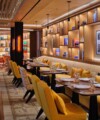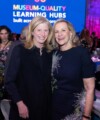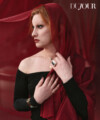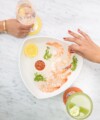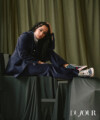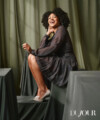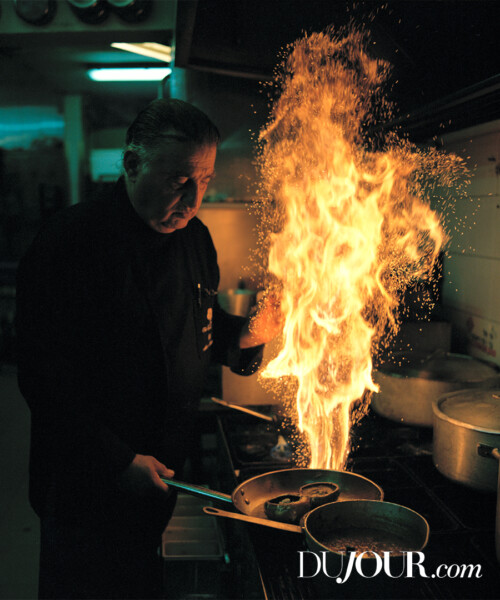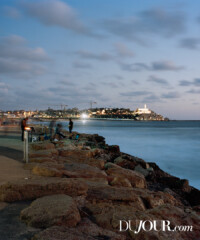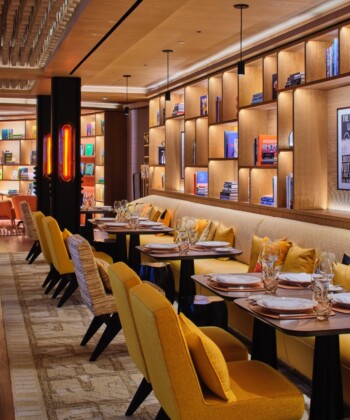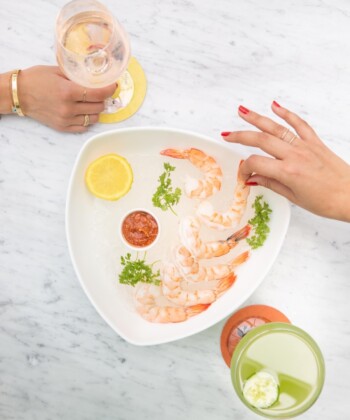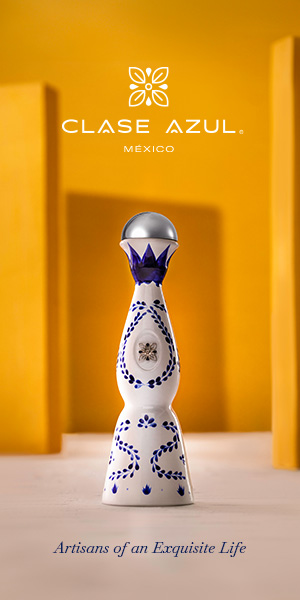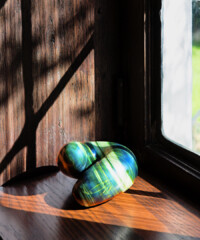One hour and 20 minutes north of Tel Aviv, in the ancient Mediterranean port town of Acre, chef Uri Jeremias leads me into the tiny kitchen tucked in the back of the Ottoman-era stone building that has housed his restaurant, Uri Buri, since 1989. Business, and life, here has not always been easy. Just 20 miles from the Lebanon border, Acre, a center of the Third Crusade, has witnessed its share of upheaval. And yet Uri Buri’s mission has remained steadfast. A decade ago, when the militant group Hezbollah began sending missiles into Israel, Acre was one of the towns hit hardest. Throughout it all, Jeremias’s doors stayed open. “It was more important than ever,” he says.
This is a philosophy practiced by many chefs, around the world and throughout the ages: Food, and eating, is for celebrating, but it’s also for commiserating and comforting. And with hard work and constancy, Jeremias and other like-minded chefs have created within Israel a dining community that continues to thrive, not just despite, but perhaps because of, the country’s on-again, off-again uncertainty.
Jeremias became a chef after spending his later youth as a fisherman, where he found the success he could not find in school. “I was lucky in that I had parents who believed in me and let me go out and find my way,” he says. Today, he runs one of the country’s most acclaimed, and most understated, restaurants, a food destination for travelers who come to spend long afternoons and evenings over meals of fish just pulled from the sea, carafes of Israeli wine and, not least of all, dessert, because, as Jeremias says, “salmon without ice cream is like a kiss without a mustache.” He cooks what he likes and what delights him in the moment; he only started recording recipes when someone asked him to write a book, which is filled, like his menu, with such unexpected pairings as anchovy-and-peach ceviche, caramelized tilapia with sweet-and-sour beetroot and almond-arak sorbet.
But although creating good food is chief, Jeremias’s focus lies nearly as resolutely on the people he assembles to help prepare and serve it. Acre is a mixed city, and both Uri Buri and his nearby 12-room boutique inn, Efendi Hotel, are staffed by equal numbers of Jews and Arabs.
“For me, peace is easy. Peace is about respect,” says Jeremias, who is Jewish. “I believe that we don’t have to agree with one another or even always understand one another, but we always have to respect one another. And in this way I do think it’s possible to work and live together. And this is because I see it happen every day.”
He built Efendi with the sole purpose of bringing more people to Acre to witness that harmony. “Life here is very different than the idea you get reading the papers and watching TV back home,” he says. “It’s very important for us here in Acre and in the whole of Israel for people to come and see that.”
Released in 2012, Jerusalem, written by London chefs Yotam Ottolenghi and Sami Tamimi, was a hit beyond expectation. To be sure, the cookbook was a best seller because the recipes in it are good—interesting, innovative, just challenging enough. But it is also a collection that is exceedingly relevant, both in terms of tastes and politics. Israeli food is like its people: a truly modern mash-up of ethnicities and viewpoints. It’s also respectful of the past, steeped in tradition and custom. Though culinary innovation is key, the chefs doing the most important work here are those who, like Jeremias, have been doing it for a long time.
“Americans think that they would find Eastern European food in Israel,” says Gil Hovav, a former restaurant critic and food-TV celebrity in Tel Aviv. “Once they are here, they are shocked at the fact that almost nobody in Israel knows what knishes are—they never made it to Israel—that most people who do know gefilte fish hate it, that we do not eat bagels and that it is very difficult to find a decent kosher restaurant.” Instead, they find Georgian pastries, Turkish shawarma, Libyan spicy fish, North African shakshuka, local cheese and wine, non-kosher sushi joints and tons of hummus. And in most cases, says Hovav, they fall in love.
“Israel is like the United States in a way,” says Leon Alkalai, one of Tel Aviv’s more pioneering chefs who now spends most of his time as a consultant and partner in Tony Vespa, a local pizza mini-chain. (“The people want pizza,” he says. “Who am I to argue with that?”) Cooking in Israel, Alkalai says, has always been about evolution and progress, and borrowing from the best of others.
“We came here from all over the world and we have all these different types of kitchens in one small place—Libyan, Bulgarian, Polish, Italian, Moroccan, French,” he says. “Many marriages are cross-cultural. That’s how the first fusion came about. But it has to move very slowly and very carefully. So you don’t destroy the history when you’re creating something new.” There are all sorts of wild Israeli versions of fusion cooking. “Have you ever tasted a Yemenite pizza?” asks Hovav. “I just had one yesterday in the Carmel Market in Tel Aviv, baked on Lehouh Yemenite dough and sprinkled with Hawaij Yemenite spice mixture.”
In recent years, both Alkalai and Hovav say, eating out—the act of getting together with others, but also of seeking out food as a source of pleasure—has become more important for Israelis as the sense of unease fluctuates. “If the fighting has taught Israelis anything,” says Alkalai, “it’s to enjoy life.” Whether it’s in the form of a family-style mezze of hummus, roasted aubergine and cheeses at Tel Aviv underground favorite Ha’achim (Hebrew for “The Brothers”) or a cast-iron pan of shakshuka, the spicy egg-and-tomato breakfast dish served all day long at Dr. Shakshuka in Jaffa, food has become an important means to escape: Surrounded by countries almost perpetually in some state of turmoil, Israelis can really only get in the car and drive as far as their own borders, or otherwise hop a plane. When that’s not possible, there is a good meal down the street. Chefs, in turn, have grown more creative.
The country’s various open markets do a good job satisfying this inventiveness for both professional and home cooks. At both Jerusalem’s Mahane Yehuda and Tel Aviv’s Levinsky markets, chilies, cumin, fresh coriander and basil mix with more classically Israeli spices like za’atar and sumac. There are Libyans selling Libyan blends; Turks selling Turkish blends. There is history: Specialty foods like halvah, marzipan and mutabak are largely sold by the same families that first began selling them in these stalls years ago, using the same recipes, too. But there is also the new: At artisanal soda shop Café Levinsky 41 in Tel Aviv, owner Benny Briga spends a good 10 minutes preparing my homemade gazoz, or soda, of macerated guavas plucked from a tree in his parents’ backyard, and although I could drink it all in one quick gulp, I slow down instead. This, of course, is entirely his point.
In Jerusalem, the book, the authors talk about how food can transcend religion (which they also acknowledge is not an absolute). In Jerusalem, the city, Iraqi-born chef Moshe Basson of The Eucalyptus does his best to achieve that ideal. His acclaimed kosher restaurant, on a cobblestoned street in the Artists’ Colony, serves a clientele that includes Arabs, Jews, Christians and plenty of non-believers “biblical cuisine” based loosely on foods of the Bible—wheat, barley, olive oil, figs, honey, pomegranates, freekeh. “Loosely” means chicken-liver macarons, fire-roasted eggplant covered in pomegranate seeds and tahini, focaccia with za’atar pesto, chubeiza gnocchi and his famous makloubeh, a rice, chicken and vegetable casserole with saffron and almond yogurt.
“When I first started, I mixed the cooking styles of my mother and my grandmother with that of our Arab neighbors,” says Basson, a founding member of Chefs for Peace, a decades-old, but perhaps never more relevant, movement that began when Jerusalem-born Armenian chef Kevork Alemian watched his Christian, Jewish and Muslim colleagues working together in the kitchen. “People see the fire and blood here, but they don’t really know what it’s like. In any kitchen there are Jews and Muslims working together, laughing and drinking together.”
As further evidence that the mood in Israel isn’t nearly as serious as the average news connoisseur might believe, nearly as much as they love food, Israelis love their reality TV—and their reality-TV chefs. Eyal Shani was already well known as a restaurateur and local eccentric when he became a host of MasterChef Israel, but the show undoubtedly put his fourth endeavor, Ha Salon, firmly in the realm of the reliably packed (despite the seeming lack of effort, with no website and hidden, as it is, at the end of a side street with no signage). Two nights a week, it is one of Tel Aviv’s most in-demand places to be, with a bar encircling the open kitchen where Shani cooks before adoring guests. The food is as inventive as one has come to expect here in Israel—grouper tartare with green chili and radish, tomato carpaccio—and the vibe far more festive, too. At around 10, the lights dim, the Arabic music gets louder, the dancing on tables begins and there’s no place anyone here would rather be.
BEFORE YOU GO…
Currie Co. Travels
Atlanta-based luxury travel veteran Betty Jo Currie and her team of well-traveled agents can create a full itinerary based on your interests, abilities and budget, from hotel stays and restaurant reservations to custom art and architecture tours.
Go Israel
The country’s official guide on what to do and where to go can offer suggestions by interest (culture, history) or region, as well as what to know about weather, safety and money.
Ayelet Nahum is the guide to culinary Israel, leading ultra-insidery eating and drinking tours throughout the country with a hyper-focus on Tel Aviv, where she spent time as a chef.
TEL AVIV
Eat:
Dr. Shakshuka
A Friday afternoon favorite with plenty of outdoor seating in the eclectic Jaffa neighborhood. The Libyan-born chef-owner serves up variations on the spicy egg and tomato breakfast dish all day long.
Ha’achim
Order up a family-style mezze platter—hummus, roasted aubergine and cheeses and more—at the casual neighborhood favorite.
Ha Salon
Possibly overpriced (but tons of fun), celebrity chef Eyal Shani’s fourth venture is as tomato-focused as his earlier efforts and becomes a dance party after 10 p.m.
Stay:
The Norman
The centrally located boutique hotel, near the city’s Rothschild Boulevard, has all the comforts you’d expect in two charmingly restored, circa-1920s buildings.
Shop:
Levinsky Market
Five blocks of spice shops, bakeries, fish stores, marzipan factories, dairies and more in southern Tel Aviv. Don’t leave without a boureka from Penso and a soda from Café Levinsky 41.
Carmel Market
Open air shopping near the hip Neveh Zedek neighborhood.
ACRE/ HAIFA
Eat:
Uri Buri
Creative seafood along the Mediterranean from one of Israel’s most pioneering—and conscientious—chefs, Uri Jeremias.
Tishbi Estate Winery
About an hour from Tel Aviv in the Haifa District, the family-run winery produces about a million bottles annually. Go for a tour, chocolate-and-wine tasting and a leisurely lunch served al fresco.
Stay:
Efendi Hotel
Uri Jeremias’ 12-room boutique hotel in the middle of an Arab village offers Ottoman design, views of the Mediterranean and easy access to Uri Buri restaurant a few steps away.
JERUSALEM
Eat:
The Eucalyptus
Chef Moshe Basson’s acclaimed kosher restaurant, on a cobblestoned street in the city’s Artists’ Colony, serves cuisine based loosely on foods of the Bible—wheat, barley, olive oil, figs, honey, pomegranates, freekah. A must: Basson’s famous makloubah, a rice, chicken and vegetable casserole with saffron and almond yogurt.
Stay:
Mamilla Hotel
Luxury lodgings where old Jerusalem meets new, with a rooftop restaurant and bar featuring wines chosen by the country’s youngest sommelier, Oz Korenberg.
Shop:
Machne Yehuda
Take a tour or workshop, or just spend hours browsing the stalls full of spices, cheese, baked goods, fresh produce and more.






